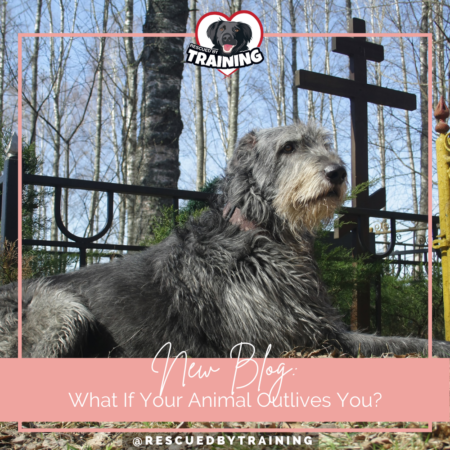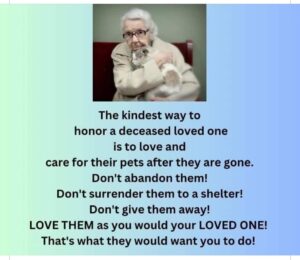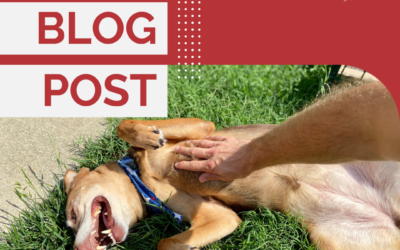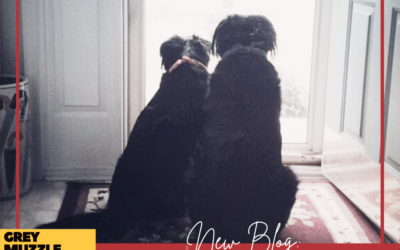There’s often posts and memes that circulate on social media that get under my skin. Videos that people think are cute or funny when I see a stressed dog. Videos of dogs and kids that anyone educated in dog body language would see as incredibly unsafe and potentially dangerous. And I usually just move on without saying anything.
But recently there’s been this one going around. And while I understand the sentiment here, I think this is an opportunity to talk about planning.
I’ve had clients that were seniors, in their 70s or 80s, who get puppies. That wouldn’t be my choice, for lots of reasons, but it’s quite possible these clients will be outlived by those puppies. And even younger people, accidents happen. We aren’t promised tomorrow. And when there’s a death, family and friends are left to pick up the shattered pieces and that may including finding a home for animals that belonged to the person that passed.
Maybe this is an unpopular opinion, but I think it’s unfair to family and friends to shoulder this responsibility, nor should they be expected to take in these animals. It is our responsibility as pet owners to make arrangements for what should happen to our animals if we are suddenly gone or unable to care them. Don’t make assumptions that someone will just come in and take your animal and care for them like you would. Sure, maybe you think your partner or spouse will care for them, and maybe that’s true. But what if you’re both killed in a car accident? It’s your responsibility as a pet owner to make arrangements in the event your pet outlives you.
How can you plan for your pet’s care if they outlive you?
- Talk to family and friends about who is willing and able to care for your pet if you aren’t. I suggest having these conversations when you’re bringing a new animal into your home.
- Have a will and include who gets possession of your pets (unfortunately they’re considered property from a legal standpoint).
- Have a dedicated savings account earmarked for your pets or allocate money in your will for the care of your pets.
- Provide a care manual, including vet contacts, where records are kept, medication and supplement instructions (update these regularly), feeding instructions, favorite toys, chews and snacks, enrichment and exercise routines, snuggling and sleeping routines and any quirky behaviors that someone who didn’t know might think was problematic.
- Sign a release with your vet’s office, giving permission for your designated person/people to have access to your animal’s records.
- Log any town/county license numbers so ownership records can be updated.
- Ensure friends, family or neighbors have keys or access to your home (including your alarm code) to be able to go in and care for your pets in the event you are unable to.
- Each year, as your animal is aging, check back in with those people who have agreed to take care of your animal for you if you die, to be sure their life circumstances haven’t changed or that your animal’s condition as they age doesn’t change their ability to care for your animal.
Nobody likes to talk about death but one thing I’ve learned in my end of life doula work is that planning and having open conversations about death and dying actually makes things easier. Death becomes a less taboo topic and we can have space to think about what we want, what we don’t want and then make plans, so we’re not scrambling in emotionally charged times, making quick decisions. And this is one of the things a death doula can help with. I can help you navigate these discussions ahead of time, before you or your animal is sick. I can help you figure out how best to memorialize them. I can provide resources if you need help.
Companion animals are family for me, as they likely are to you. And just like if I had a human child, it’s my responsibility to ensure there is a plan in place if something happens to me. Since I was 22 years old and had my first dog, I’ve made arrangements for my animals in the event I die. If you were to suddenly disappear, your animal would be confused and grieving. Let’s aim to make that transition as easy as possible with a little planning and tough conversations.
If you need support, please schedule a session with me here.
![]()





